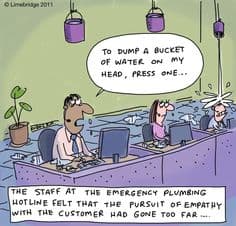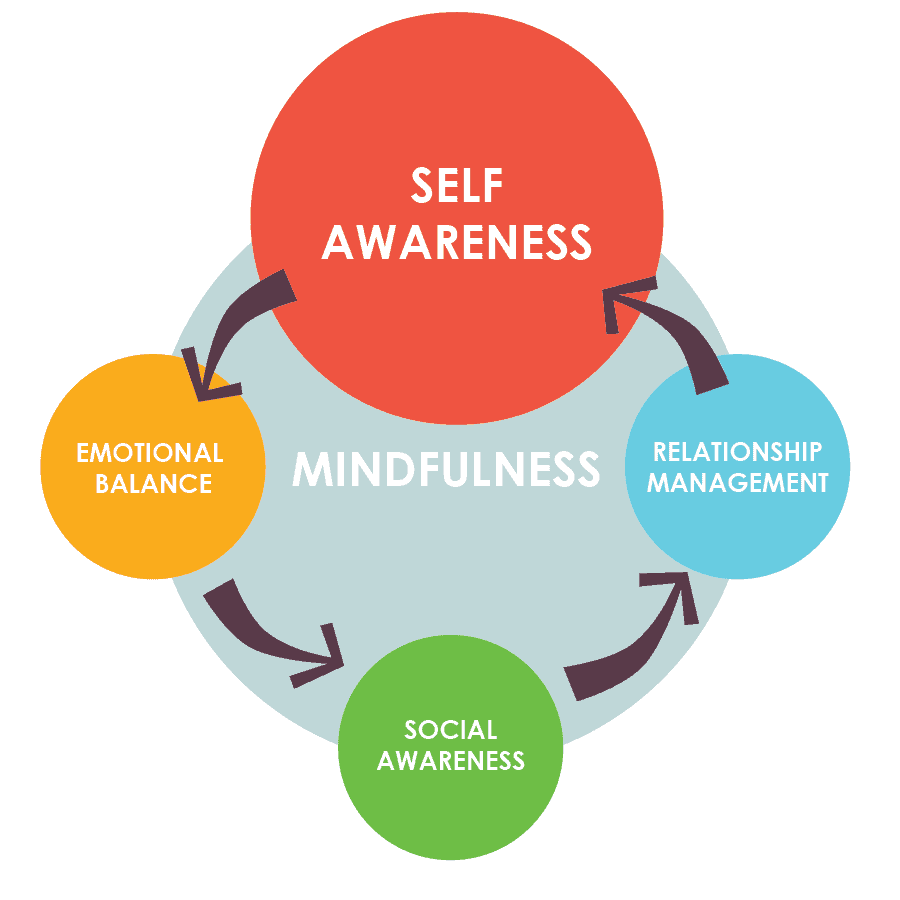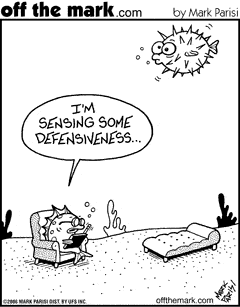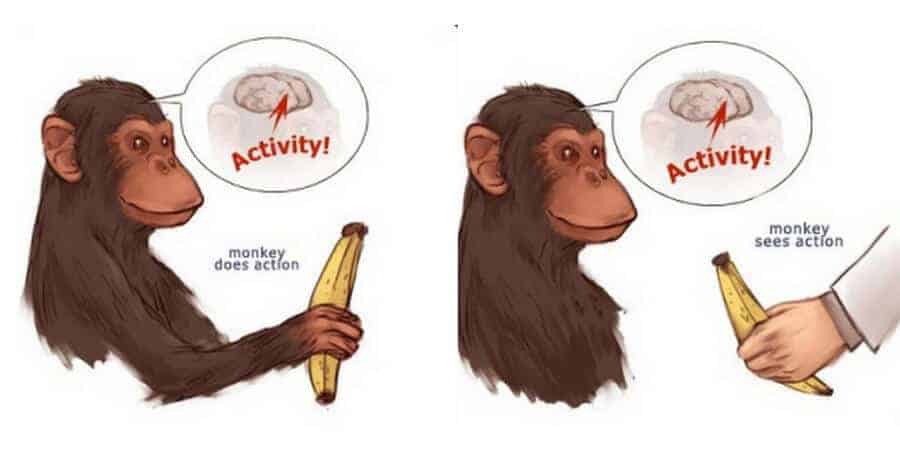What separates a good leader from a great one?
According to psychologist Daniel Goleman, it's emotional intelligence.
"IQ and technical skills matter...they are crucial threshold abilities, what you need to get the job done. But everyone you compete with at work has those same skill sets."
According to Goleman, you need to stand out and develop a key area most overlook: emotional intelligence.
What is Emotional Intelligence Anyways?
Before we dive into how to improve your emotional intelligence, let's make sure we're all on the same page about what it actually is.
Emotional intelligence is our ability to understand and manage our own emotions and the emotions of others. It's about being aware of what you’re feeling, why you're feeling it, and how to express those feelings effectively. It’s also critically about understanding others and learning how to empathize, react, and cooperate with others based on their emotions, too.
This term was first mentioned in 1964 by Michael Beldoch in his work “Sensitivity to expression of emotional meaning in three modes of communication”. Later there were other scientists who wrote about EQ, but it became widely used and popular thanks to psychologist Daniel Goleman, whom we mentioned in the beginning.
Thanks to his book “Emotional Intelligence – Why it can matter more than IQ” in 1995 EQ became a widely known term. The connection to leadership was clear to many from the start, and Goleman remarked there is a strong connection between emotional intelligence and successful leadership, going so far as to state he felt it was often the difference between a good leader and a bad one.
Recognize the 5 Elements of Emotional Intelligence
Goleman wrote that emotional intelligence comes down to five main elements, which capture well the key aspects of EQ::
- Self-awareness — being able to recognize your own emotions and understand your tendencies and triggers.
- Self-regulation — managing your emotional responses by controlling your reactions and impulses.
- Motivation — being aware of what motivates you and others.
- Empathy — recognizing how others are feeling in order to relate to them more effectively.
- Social skills — Managing relationships and building rapport with others.
You’ll notice we have posts on each of these topics, because they’re critical aspects of being a great leader. By mastering these areas, you can better handle challenges, connect with your team, and bring out the best in those around you.
An emotionally intelligent leader stays calm under stress, resolves conflict empathetically, and motivates their team through inspiration rather than intimidation.
Now that we understand the basics, let's look at the cost of having low emotional intelligence for leaders.
What’s the Difference Between a High EQ Leader and Low EQ Leader
EQ has a significant influence on being an effective leader, because it relates to key management behaviors including your communication, how you build trust, and how you handle stressful situations.
Leaders who have problems with EQ often struggle in those areas, which can lead to conflicts with your team, disengaged team members, and difficulty getting buy in and support for your ideas. But low EQ leaders have more than simply interpersonal relationship issues with their teams, they can also be quite costly for your company.
The cost of low emotional intelligence for leaders
Travis Bradberry, president of emotional intelligence training center TalentSmart and author of Emotional Intelligence 2.0, says that a lack of emotional intelligence among leadership can cause significant damage to an organization.
"Leaders prime the emotional state of the organization...So when they're ineffective, when they set poor examples of how they treat other people, that trickles down throughout the company.”
The result from this can be everything from high employee turnover to increasingly toxic behavior among employees.
For example, a study by researcher Christine Porath and her team at Georgetown University found the cost of leadership with low EQ to be significant:
- 63% of employees wasted time avoiding the low EQ leader
- 75% of employees said that their commitment to their job had waned
- And 12% quit their job specifically because of bad leadership
At first, EQ may have seemed like a luxury or optional concept to invest in, but hopefully, now you see how much it impacts your leadership, and how it can really cost you and your company if you have low emotional intelligence.
Bringing It All Together - The Key Differences
In summary, here are some of the key differences between high and low EQ leaders:
| Aspects | High EQ Leader | Low EQ Leader |
|---|---|---|
| Self-Awareness | Understand his own emotions | Poor grasp of his emotions |
| Self-Regulation | Manages his emotions skillfully | Acts reactively and impulsively |
| Motivation | Inspires and supports others in word and acts | Toxic remarks, lowers morale due to actions |
| Empathy | Understands team needs and listens to them | Poor understanding of others and a lack of care |
| Social Skills | Strong communication, builds trust and rapport consistently | Strained relationships, and underinvests in connections with team |
If you feel like you have some of the characteristics of a low EQ leader, then you have work to do.
Fortunately, all of the major skills that make up emotional intelligence, from being aware of and managing your own emotions, to empathy and other interpersonal skills, can be improved with practice. So let's take a look at how you can develop and improve your EQ skills.

3 Ways to Develop More Emotional Intelligence as a Leader
There's a lot you can do to develop more emotional intelligence.
However, there are a few things that are most effective. These approaches allow you to develop all, or several, EQ qualities at once.
Here are 3 practical ways to develop emotional intelligence for leaders:
- Practice mindfulness
- Learn to accept feedback
- Use 1-on-1s and downtime to develop empathy and mentor employees

1. Practice mindfulness to develop self-awareness
The ability to manage yourself, through self-awareness and self-regulation, is essential to leading others; the example you set influences everyone around you.
"Star leaders are stars at leading themselves, first,” says Daniel Goleman. "If you can't fine-tune your own actions – keeping yourself from blowing up or falling to pieces – you'll be poor at handling the people you deal with.”
Mindfulness is one of the most effective ways to develop both self-awareness and self-regulation (the ability to manage and respond to our own emotions).
By raising your awareness of what's going on within yourself mentally and emotionally, you're able to notice changes as well as understand how outside influences affect you.
Mindfulness then gives you the "space” to go from how we typically respond to a situation, which is:
- experience (someone criticizes you or your decision) -> emotional reaction (you become angry and lash out)
to:
- experience (criticism) -> awareness (I hear what they're saying and I also see that it's making me angry) -> conscious response (You let the anger cool down before responding more constructively, "I understand where you're coming from, this is what I was thinking…”)
This seemingly simple change can drastically improve how you respond to virtually every kind of social interaction.

Mindfulness touches all 4 areas of Emotional Intelligence
Mindfulness helps you develop in all four areas of emotional intelligence at the same time– self-awareness, emotional control, social awareness, and relationship management.
A recent article in the Harvard Business Review found mindfulness was beneficial for developing several leadership qualities. One of those was meta-cognition, which is the ability to monitor our thoughts and feelings. This is a key to developing your self-awareness.
However, the self-awareness we develop with mindfulness practice helps us do more than just manage ourselves better. It also helps us communicate and work better with others.
Mindfulness also makes you a more emotionally intelligent communicator
Another benefit mentioned in the same HBR article was an increased curiosity for the world around us. Specifically, a greater interest in learning about and talking with the people we meet.
This, along with the fact that mindfulness has been shown to increase empathy, makes it super effective for helping facilitate clear and open communication. It can also then help you develop stronger bonds with your employees.
When you understand yourself better, it's easier to understand others as well.
A life changing benefit
Leadership and mindfulness researcher Dr. Matthew Lippincottt, studied high-level executives and managers with long-term mindfulness practices. Most described mindfulness as having "life-changing” benefits to their professional life.
A senior manager whom he interviewed from one of the world's largest research and publishing firms of mindfulness said:
"You're able to calm yourself down and put yourself in a better position to listen to someone… [and] I find I'm able to be [more] composed and organized and clear in my communications.”
And the self-awareness born from mindfulness is important for other reasons as well.
The lack of ability to listen and respond skillfully to others is a sign of one of the most damaging qualities a leader can possess: defensiveness.
If you want to practice more mindfulness, here's a few ways to get started:
- Set aside some time each week to reflect: think about how the week went, how various situations affected you, and how you affected others.
- Try meditation: clearing your mind, and relieving tension will help you be more present regardless of the situations you face.
You can find more ideas for improving your mindfulness and self-awareness here.

2. Learn to accept feedback without becoming defensive
According to Rachel Green, Director at The Emotional Intelligence Institute in Western Australia, "Being able to hear feedback without becoming defensive is an essential skill for a leader, and one that reflects an emotionally intelligent leader.”
The problem, she says, is that many leaders are too defensive to admit they need to make improvements.
Unfortunately, it's their emotions (such as pride or anger), and a lack of self-awareness about those emotions, that get the best of them. By not hearing the feedback it prevents them from growing and improving as leaders.

The high price of defensiveness
Defensiveness can erode not only the trust, but the confidence you've developed with your team. Green outlines a variety of ways defensiveness can hurt your ability to lead by:
- Blocking communication
- Breaking trust
- Impairing your reputation and lowering respect
- Leaving your employees feeling frustrated and ignored
- And, of course, keeping you from benefiting from the feedback itself
Unfortunately, it's easy to become defensive as soon as a team member brings up a challenge they have with you or your management style.
We all want to make progress, but we often hinder our ability to make progress by dismissing good feedback when we get it.
As you progress in your career, it's easy to think you have it all figured out; however, just because something worked with one team or employee, doesn't mean it works in all future cases you encounter.
If you're dedicated to becoming a great manager, you need to be willing to admit when you make a mistake or fall short.
You'll only become as good a leader as you can be when you're open and honest with yourself and your team. That's something learning to empathize with your employees can also help with.
If you want to be less defensive next time you receive feedback try the following:
- Pause when you receive feedback. Count to 10 in your head if you need to, so you can let any initial emotion pass.
- Thank them for the feedback. Let them know you appreciate them having the courage to come to you.
- Ask clarifying questions and examples of what they're describing so you can understand the feedback and the impact it has.
Learn more about the ways to get feedback from employees and be less defensive.

3. Use 1-on-1s and downtime to develop empathy and mentor employees
Researcher Giacomo Rizzolatti and colleagues at the University of Parma, Italy have discovered that our mind is equipped with a "mirror neuron system.”
The system fires neurons that replicate or "mirror” the behavior of another person as though you were the one acting in that way.
The catch is that you need to have acted or felt similarly before for the brain to "copy” the feeling:

Psychiatrist Judith Orloff M.D., who is author of The Empath's Survival Guide, says that "these cells enable everyone to mirror emotions, to share another person's pain, fear, or joy.”
By learning about your employees on a more personal level– their goals, challenges, and motivations– you can mirror what they're feeling. This helps you understand and empathize with them better.
The power of 1 on 1s
1-on-1s are the most natural place to do this. From the context of emotional intelligence, it's no surprise why they're so effective. They're the single best way to learn about your employees on a personal level.
By making an effort to learn how your employees feel and think, you can come to understand them on a deeper level. You can learn all kinds of vital things about your employees by sitting down with them for even 30 minutes, whether it's for a 1-on-1, having a chat at lunch, or during happy hour at a local bar.
This sustained time opens up deeper relationship building than happens when solely focused on work or small talk that happens in tiny bursts.
Use your 1 on 1s and other similar time to uncover:
- What motivates them
- Their major goals and dreams
- What they want from their job, career, and life
- What they dislike
- The issues and challenges they want help with
Learning to empathize with team members helps you do more than just understand them better. It also makes you a better mentor.
1-on-1s are a great platform for mentoring as well
Remember the 4 quadrants from before? Mentoring falls within the relationship management quadrant of emotional intelligence skills.

According to researchers Rose Opengart and Laura Bierema from the University of Georgia, employees who receive mentoring achieve higher positions, pay, and career satisfaction. Those are pretty good reasons to mentor.
1 on 1s are the perfect time to do this. They give you the ability to pass on knowledge and support your employees to help them grow. And best of all, you don't have to find time then; if you've already scheduled 1 on 1s, then you can simply add them to your agenda to discuss then instead of trying to squeeze in another time for it.
1-on-1s offer a platform for your employees to express any challenges they might be facing so that you can work through them together. That could relate to their role, specific work they're doing, or a conflict with another team member.
You're then able to offer your knowledge and experience to help them and develop a stronger bond.
If you're looking to work on your empathy and mentoring of your team, here's a few places to start:
- Learn how to have a great conversation to help them achieve their goals here.
- Develop more empathy by getting to know them better with some of these rapport-driven questions.
Are you developing your emotional intelligence?
The great part about emotional intelligence is it's a skill you can learn and develop.
There are quite a few different skills that fit within the ‘emotional intelligence' umbrella. Fortunately, these skills are all inter-related so you can often learn them together.
Even companies like retail giant Tesco have seen the value in investing in emotional intelligence with great results. The company experienced its first profitable quarter in almost 4 years after implementing an empathy and kindness training program for its teams.
What are you waiting for?
As a leader, your employees look to you to establish important parts of your team's culture: from communication habits to the willingness to take ownership of your mistakes. Almost all of these are tied to your emotional intelligence.
No matter what you do to develop your emotional intelligence, work to identify your weaknesses. Be conscious about how you're developing those areas moving forward so you can give the best of yourself to your team.





